The UN also takes the field against the Chinese wet markets, calling for a worldwide ban on wet markets where wild animals are slaughtered.
Time against the Asian wet markets the UN also takes the field calling for a worldwide ban on wet markets where wild animals are slaughtered. To promote the request is Elizabeth Maruma Mrema interim responsible for the United Nations Convention on Diversity, which explained precisely that to avoid future pandemics, markets where animals, dead or alive, are sold for human consumption.
In an interview with The Guardian, Elizabeth Maruma Mrema, using the examples of Ebola in West Central Africa and the Nipah virus in East Asia, said there are clear links between the destruction of nature and new diseases.
“It would be nice to ban markets that use live animals as some cities in China and other countries have done,” he explains. Opinion also shared by Jinfeng Zhou, secretary general of the China Biodiversity Conservation and Green Development Foundation, who called on the authorities to make the ban on wildlife markets permanent and not to let their guard down on other diseases such as Covid-19.
"I agree that there should be a global ban on wet markets, which will help a lot in wildlife conservation and in protecting ourselves from improper contact with wildlife," Zhou said. "Over 70% of human diseases come from wildlife and many species are threatened by their consumption."
However, Mrema says he is optimistic that man will take the consequences of the destruction of the natural world after the pandemic more seriously to renegotiate a more suitable post-2020 framework for biodiversity.
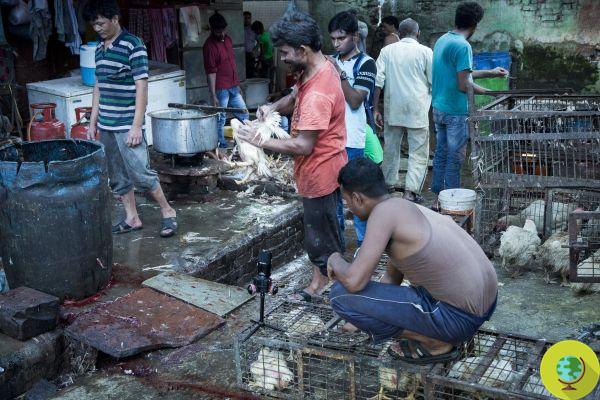
©Animal equality
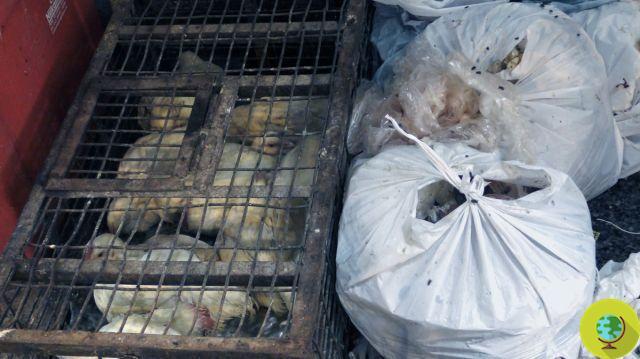
©Animal equality
“Preserving intact ecosystems and biodiversity will help us reduce the prevalence of some of these diseases. So the way we farm, the way we use the soils, the way we protect coastal ecosystems and the way we treat our forests will either ruin the future or help us live longer, "he says again.
"We know that in the late 90s in Malaysia with the outbreak of the Nipah virus, the virus is believed to have been the result of forest fires, deforestation and drought that caused the relocation of fruit bats, the natural vectors of the virus from forests on peat farms. It infected farmers, infected other humans and led to the spread of the disease.
Mrema's statement comes in the wake of another major wet market ban, this time by the director of the U.S. National Institute of Allergies and Infectious Diseases, Anthony Fauci. “I think we should close those wet markets right away. I don't know what else has to happen to make us understand this fact ”.
In recent days, Animal Equality after showing the shocking images of the wet markets, he launched a worldwide campaign that has already collected over 200 thousand signatures. Recall that the "wet markets" take their name in part from the blood and the remains of animals that cover the floor. In this type of market, live animals coexist with the remains of those who are killed on the spot for customers who want to eat freshly slaughtered meat.
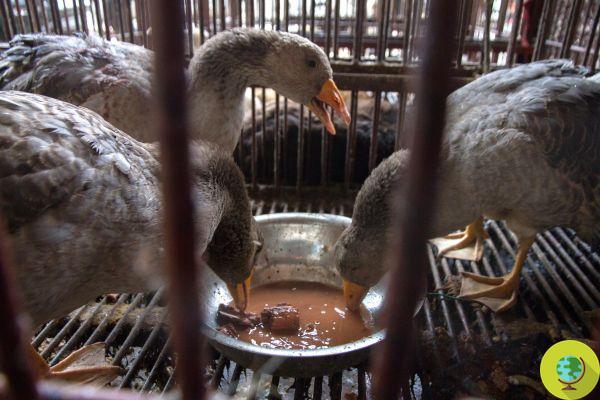
©Animal equality
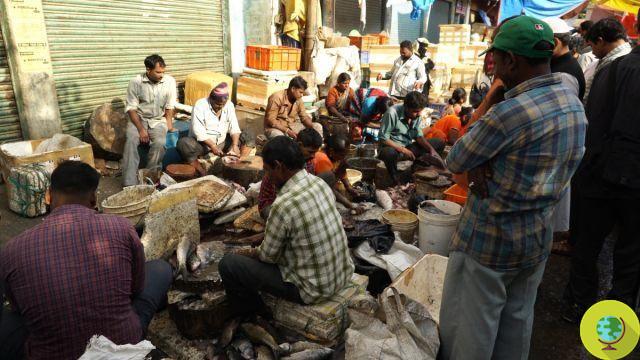
©Animal equality
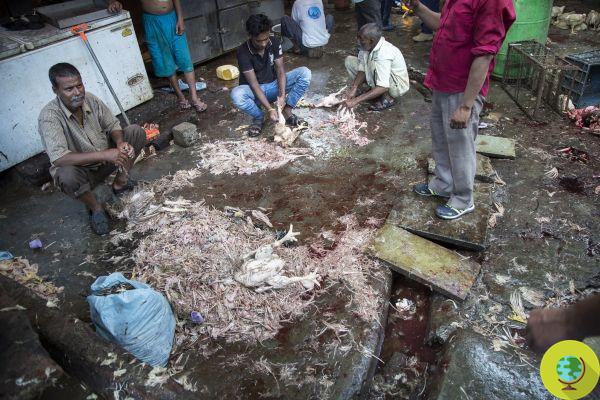
©Animal equality
The campaign, which was launched simultaneously in 8 countries, includes unpublished images recorded by Animal Equality during research conducted in wet markets in China, Vietnam and India, showing animals such as deer, raccoons, crocodiles and dogs, living in unsuitable conditions. hygienic, suffer from dehydration, hunger and disease.
Now finally answers are also coming from the UN on this type of markets, recalling that the coronavirus pandemic that is affecting the world would have started in China from one of these in Wuhan.
We close the wet markets forever
“Thanks to exclusive footage shot by investigators in wet markets in China, Vietnam and India, we can show how animals such as deer, raccoons, crocodiles and dogs live in dirty cages, dehydrated, hungry and sick. These markets also pose a threat to public health and this is where several epidemics, including SARS, have arisen in the past. Researchers believe that COVID-19 also probably originated in a wet market in Wuhan, China, a market known for its wildlife trade, ”the petition concludes.
SIGN THE PETITION HERE
Fonti: The Guardian/ Convention on Biological Diversity/Animal Equality
Read also:
- Coronavirus: What are the wet markets that are causing the devastating viruses in China to develop
- We close the wet markets forever! The petition with the shocking images of Asian wet markets
- In China, markets where dogs, cats and bats are eaten are reopening


























